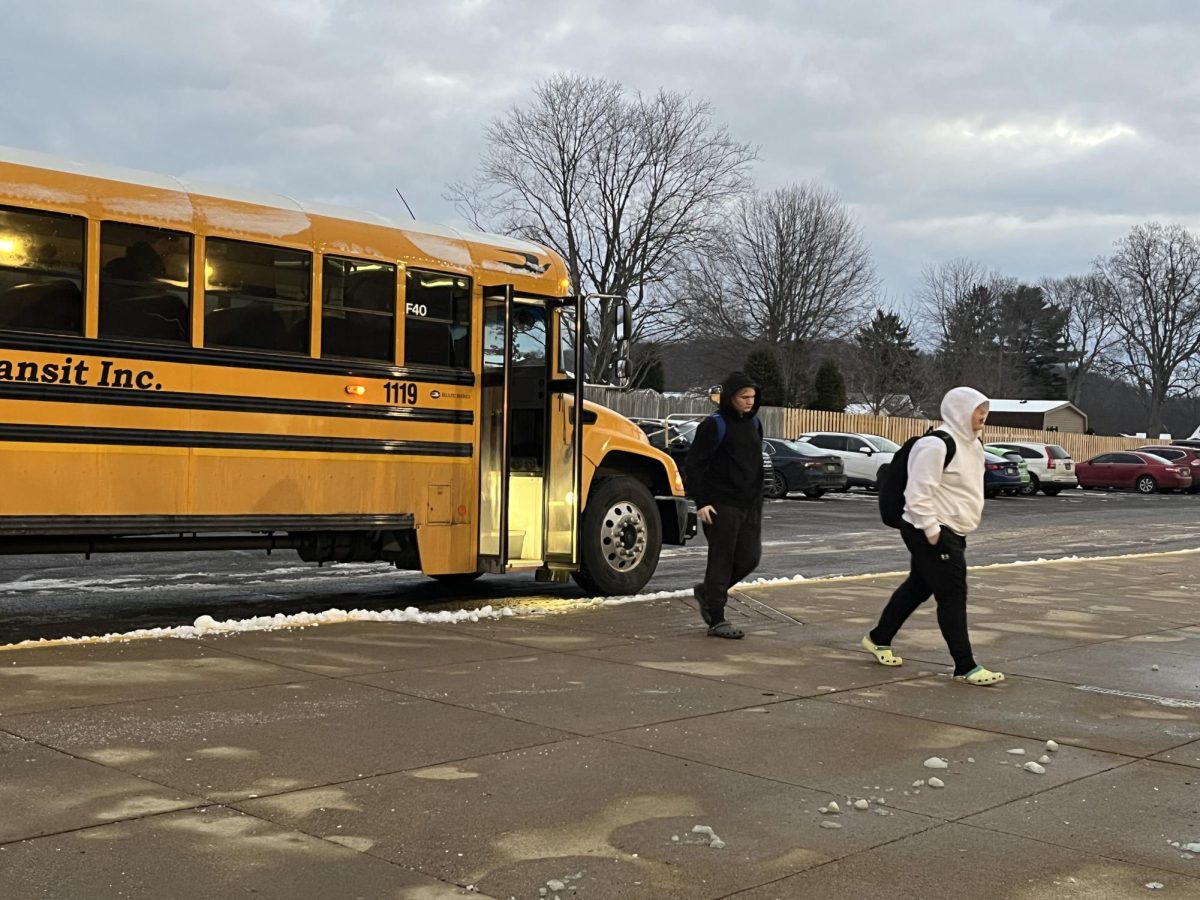As a child, a snowy Monday morning meant anxiously watching the news, scanning for a snow day announcement. When the long-awaited words came into view, the snow pants went on and the snowman construction began. As high school students, a snowy morning means clearing off cars and hoping the roads are clear and safe to drive on.
Snowfall, ice and other harsh conditions can be unpredictable until the morning of. When the administration feels safety is a concern, the process of evaluating road safety begins. A collaboration between the administration, police departments, PennDot and more go underway to determine the best way to proceed. If weather conditions are dangerous for drivers, the district has the option to implement a two-hour delay, flexible instruction day (FID) or to cancel school entirely.
“If the roads are not safe, we are not going to put buses and students out on the road,” Principal Steven Mott said.
As a district, the school are required to complete 990 hours of instruction. According to Pennsylvania law, two-hour delays and school cancellations must be made up at a later date to meet this quota. However, flexible instructional days do not need to be made up, because they count as regular instruction.
The law defines FID days as days when schools are unable to open and proceed with instruction due to hazardous weather, disease or epidemic, a law enforcement emergency, damage to the school building or another temporary circumstance rendering use of a school building unsafe. These days may be online instruction, offline instruction or a combination of both. Similar to the days of virtual instruction during the pandemic, Freedom FID days include Zoom meetings and online assignments.
This online instruction option allows students, teachers, drivers and many other individuals to remain safe while normal instruction proceeds. The implementation of more FID days could ensure student drivers and other driver’s safety even when conditions are not harsh enough to rationalize school cancellations. While this may be advocated for, the Commonwealth of Pennsylvania limits the usage of FID days to five per school year.
This limitation may be in place to reduce the amount of online instruction, pressure on parents to find childcare or simply to limit the amount of requests by schools for FID days. No matter the reason, driver safety, especially students, should be the top priority without the worry of a calendar extension or law. The administration and schools across Pennsylvania should not be limited by the amount of FID days they can have. Each school district has the capability to access situations on their own and do what is best for their community. When safety is already a top priority, the government should trust that usage of FID days will be used appropriately.
“We are not just doing that to just to go to a two-hour delay or no school. We are doing it because we are looking at safety,” Mott said.
In a world turning virtual, schools should use online instruction as a tool and not something to avoid. Since the pandemic, workplaces have shifted to allowing employees at-home options. The reality is that students will be exposed to learning environments like this for years to come. FID days allow for new skills to be learned, instruction to continue and overall safety.



